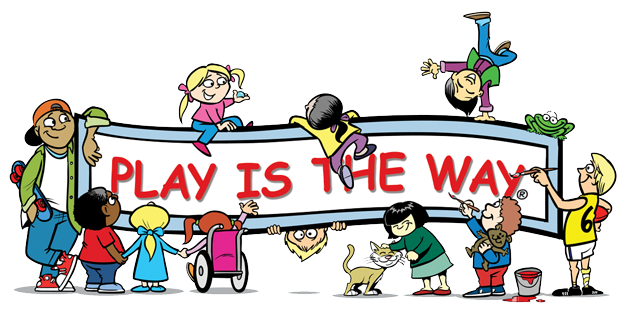
By Wilson McCaskill
A test of independent, self-motivated learning is the capacity for students to strive for their personal best without the use of bribery or threats. There is a likelihood any school that has managed to remove the unwarranted use of praise and rewards will encounter students who, although motivated by the realisation that the reward of learning is learning itself, stay within their comfort zones rather than stretch their capabilities in pursuit of their personal best.
Motivated to do well and keen to learn, they may lack the necessary drive to do their best, take risks and deeply explore ideas.
We must remember that these children do not live in a vacuum. Daily they witness the belief system that you only do something if someone will give you something for it. Extrinsic motivation abounds and as most of us have a price, there is a real possibility we can be bought by the person willing to pay it.
Authority dependent behaviour is the opposite of independent behaviour and it would be a rare child who has not been shaped by the notion that there is no point in doing your best if someone won’t reward you for doing it. Add to this the fact, that even though school may be busily developing the child’s capacity to be independent and self-motivated, his or her home life is likely heavily influenced by carrot and stick (rewards and punishment) techniques of parenting.
Pursuing you personal best without the lure of extrinsic rewards or fear of punishment, though challenging, is possible. However, if we are going to ask students to pursue their personal best we must be ready to give them convincing reasons why a particular task should be done in the first place. And we must be realistic; pursuing your personal best in all things and at all times would be exhausting. Even those in the elite realms of endeavour and achievement have off days – after all, they are only human.
It is obviously easier to pursue your personal best in things that excite you or are inherently interesting and enjoyable. The challenge is to be equally motivated in areas that are less stimulating but of value never the less. This is particularly so for elite athletes and artists who must get through vast amounts of motivation sapping training for the comparatively short thrill of competition/performance. At such times; self-motivation is easier if you have the capacity to self-evaluate. Sadly, this capacity is poorly developed in too many children.
Much as schools may be working on developing independent learners, there appears to be one area where adults in positions of power still make the biggest calls; and that is in the area of evaluation and assessment.
If grades, scores and levels are necessary to determine whether or not a student is fulfilling their potential, then regular and frequent assessments of the student’s work will be required. It is here that the students learn to wait with anything from, couldn’t care less to caring far too much for a judgement they have little say in.
Learning to knowledgeably evaluate your own work and to defend that evaluation or acknowledge someone else’s accurate assessment creates an attachment to the product of your labour and skills that is both empowering and motivational. Having the capacity to accurately self-evaluate your work and determine its merit or lack of, takes guidance and training.
Self-evaluation is a safeguard against complacency and developing students with the capacity to do so goes a considerable way to ensuring they grow into independent, self-motivated learners.
IMPORTANTLY, self-evaluation underpins and supports self–esteem. For too many children their sense of worth is dependent on the evaluations, opinions and judgements of others. Rather than having a robust self-esteem founded on a well honed, accurate and honest self-assessment of their character and capabilities their, what one might call, false-esteem all to easily rises and falls in response to negative or positive feedback.
It does not take too much imagination to see how vulnerable and manipulable children with false-esteem can be. Nor does it take much to realise the protection afforded a child by the security blanket of skilful, well-practised self-evaluation.
If you are using Play Is The Way®’s Permission To Process strategy or implementing the Ultimate Community Role Model (UCRM) your students will already be developing self-evaluation skills.
However, there is more that can be done and should be done. An opportunity for productive development lies in assignments (either electronic or hard copy) that students submit for assessment.
Rather than simply submitting their assignment students can be asked to attach a written evaluation. The size and scale of this evaluation is for the teacher/class to decide and if a score is to be given by the teacher then the student could first propose the score they believe their assignment deserves and supply substantiating reasons.
Knowing how the students evaluate their work is at the very least informative and gives the teacher another perspective by which to assess the assignments and a means to hone the student’s evaluation skills.
Once the teacher has assessed the assignment they can return it with comments that relate to the assignment itself as well as the comments of the student. This will strengthen the teacher/student connection and give both parties a better understanding of each other’s requirements and standards.
How much is written is up to the teacher. It may be as simple as, “Thank you. Let’s talk,” followed by a discussion that arrives at an agreed evaluation. Or “I agree with your assessment” or “I don’t agree and I’d like to explain why’ (which does not indicate if the teacher thinks the score should be higher or lower.)
The ensuing conversations can help students learn to effectively self-evaluate against criteria that guides the teacher’s assessment. This evaluative feedback also helps students who may be unduly harsh on themselves, to be more realistic and grounded in their assessments and gives them the chance to modify their evaluation based on the evidence within their assignment.
It is so much easier to determine if you have pursued your personal best in things that are physical and require exertion, stamina or strength. Knowing if you have run your hardest in a race is often easier that knowing if you have given an assignment your utmost, especially if you achieve a very high score.
Self-evaluation requires critical thinking and analysis. It requires insightful questions asked of self and the courage to answer those questions honestly. Self-evaluation is a thoughtful and intimate relationship between what you want to believe and what you have actually achieved or attempted to achieve.
I am sure creative teachers can think of many and varied ways students can be invited to self-evaluate their learning as well as their contributions to the classroom community, and their development mentally, physically and emotionally. I am also sure that junior primary teachers can embed this skill at an age appropriate level, thereby making it a helpful and supportive habit of action.
Self-evaluation develops a meaningful sense of self-worth based on the evidence of who you are (character) as well as what you can do (capacity).
I believe if we want students to be genuinely independent learners then we must, when we can, avoid assessing their work before they have honestly assessed it themselves.
If we want children to develop a love of learning and be motivated to pursue their personal best, then we must give them the skills to genuinely understand themselves and be deeply interested in their own progress and betterment. If we don’t, we will discover that independence and self-motivation hover in the calm waters of complacency rather than thrive in the tempestuous seas of academic excellence.

